There is not one single template for who or what a leader should be or look like. Anyone can be a good leader, and what makes us different is often what will make us unique and a great leader, as long as we understand our strengths and those of our team.” – Joana Trinade, Sea Sense, Tanzania
In early March last year, I was in Zanzibar, admiring the calm of the Indian Ocean having just finished a workshop. I was checking my emails, preparing to travel to Kenya a few days later to start an exciting new venture, when a concerning headline appeared in my inbox: “CORONAVIRUS: Kenya bans all international meetings and events on its soil”. Unsure whether to trust the news source, I called various colleagues, only to confirm that Kenya was planning to close its borders in an attempt to prevent the spread of the pandemic into the country. Two days later, I was on a flight back to the UK, with reality setting in about the scale of what was about to unfold.
Together with our partner organisation Maliasili, we were preparing to launch the African Marine Conservation Leadership Programme (AMCLP) and looking forward to its first week of training, which was going to take place at the end of March in Diani, on the south coast of Kenya. The programme was designed to bring together marine conservation leaders from across East Africa, building their capacity as changemakers of local and regional community-based conservation organisations, and developing a network where peer learning, collaboration and companionship can thrive.
Maliasili are experts in this field, having led numerous programmes with influential conservation leaders from across Africa, such as the African Conservation Leadership Network (ACLN). As a marine conservation organisation dedicated to strengthening local leadership, Blue Ventures brought expertise and connections to a diversity of community-based organisations from across the Western Indian Ocean region. Together, we crafted a programme of in-person learning, where 17 leaders of eight organisations spanning Tanzania, Kenya, Somalia and the Comoros, would come together over the course of 2020.
As the shockwaves of the pandemic continued to spread through the region, we knew that the programme was going to have to change. The leaders and their teams endured tough lockdowns and unprecedented change, yet continued working tirelessly to adapt and provide support to the coastal communities that they serve. As organisations working on the frontlines of conservation, with those who are particularly vulnerable to the shocks of COVID-19, we wanted to create a space for them to share experiences and challenges amongst their peers.
Rising to the challenge
For Maliasili, the impacts of COVID-19 meant a complete overhaul of their events across sub-Saharan Africa for the rest of 2020, which were specifically designed to be facilitated in-person. Similarly, we knew that we had to completely restructure the AMCLP to an online format. “We had to take a hard look at the curriculum and think about what could be done,” Cara (Organisational & Leadership Development Coordinator at Maliasili) said, “which elements of the course can be self-led? Which content is most important? We made really hard choices about what to include, which was difficult because we cared about it all”.
After careful thought, we decided to create an innovative online learning platform that the leaders could access at any time to complete theory-based modules. Developed from scratch by the Maliasili team, the suite of modules included strategic fundraising, communications, time management and managing teams. Alongside this self-led learning, we also designed three ‘live weeks’, where the leaders would come together for five half-day online sessions to put their learnings into practice and begin to bond as a network.
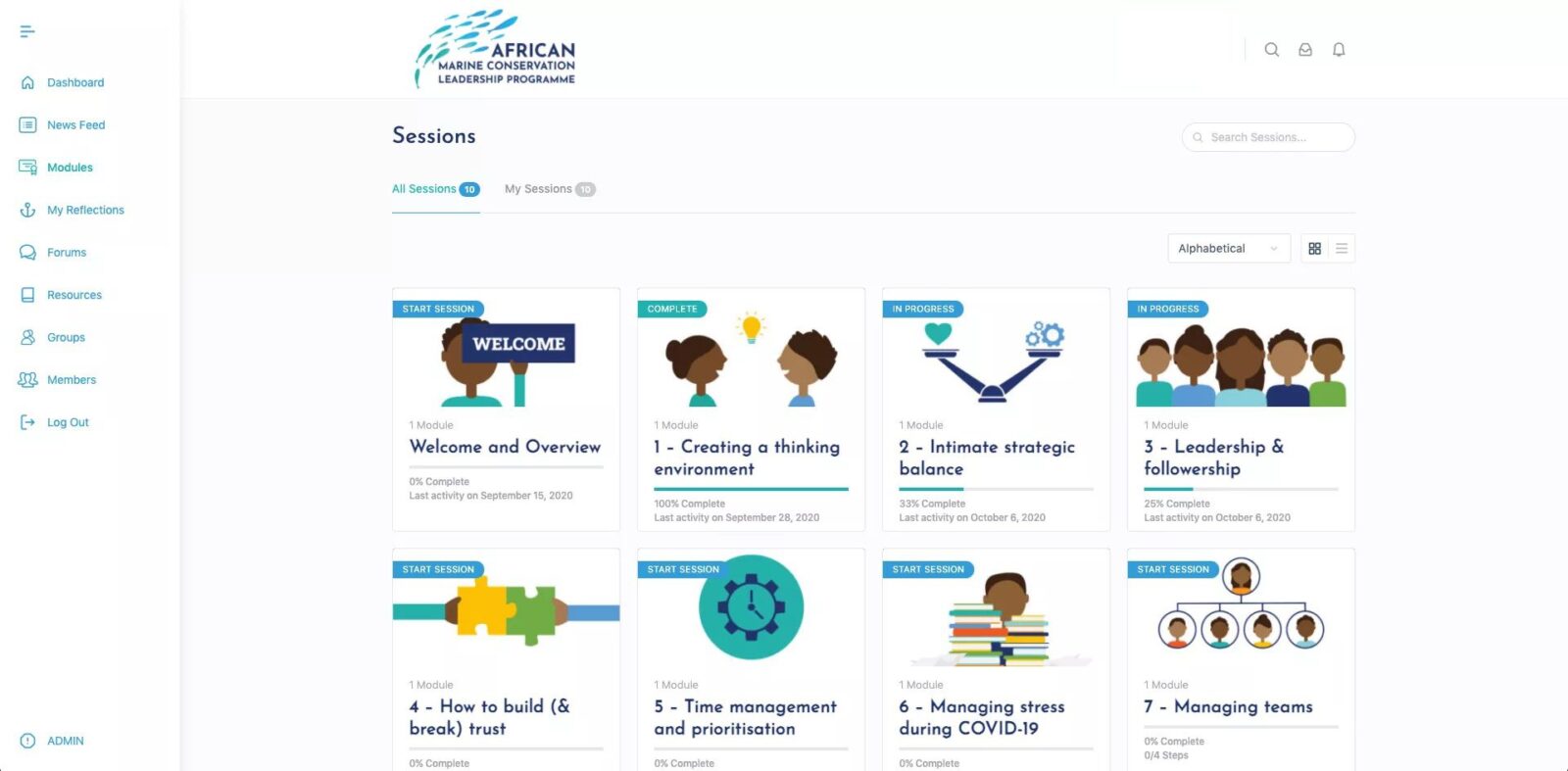
The newly designed online learning platform enables the leaders to lead their own learning and access resources, forums and module content at a time that suits them | Photo: Blue Ventures
A unique opportunity that the new online format presented was to invite leading marine conservation experts from across the globe to share their experiences in community-led conservation with the cohort. In a diverse panel discussion, the leaders were joined by David Obura, Founding Director of CORDIO East Africa, Alifereti Tawake of the Fiji LMMA Network and Gayatri Reksodihardjo-Lilley, the founder of LINI, one of Blue Ventures’ partner organisations in Indonesia.
Building connections in a virtual world
Despite the success of the new online learning platform, we were still daunted by what was to come. From experience, we knew that online workshops can be an unforgiving environment, which require a huge amount of preparation and facilitation; organically growing a network in such a space seemed all the more challenging. A key element of Maliasili’s courses is relationship-building, which as Richard (Senior Associate at Maliasili) describes was the area we were all most concerned about:
One of our core competencies is working with people, and although we cover strategy in our programmes, building intimacy is absolutely vital to their success. Transferring that aspect of intimacy online was a daunting prospect – we looked at ‘Zoom fatigue’ and thought hard about how to keep people engaged and free from distractions.”
On 26th October, almost seven months later than planned, we welcomed all 17 members of the programme to the first live week of training. We didn’t want the leaders to feel like this was just another online meeting. We wanted to replicate some of the intimacy they would have if they were in the same room, but as Cara says, “this was something we had to do very intentionally online”.
Throughout the week, we planned some simple ways to build connections between the leaders, such as starting each session with an ‘icebreaker’ question. During breaks, we’d ask everyone to take a photo and post it in our WhatsApp group – a photo of their lunch, a selfie of them at their desk, one day it was a photo of their shoes! To keep the energy flowing, we asked the leaders to regularly get up from their desks to stretch and keep active. Each day, the leaders would ‘breakout’ into trios to share their thoughts and reflections in a more informal but private space.
A safe peer learning space
In addition to these activities, each week has a key learning theme, “Week one is about the self, week two is about leading your teams, and week three is about systems and collaboration change beyond your organisation” explains Cara.
As the leaders explored ‘the self’ during week one, they reflected on their leadership skills, management styles, and how they present themselves as leaders. Fiona Moejes, one of the leaders, told me, “It was great to understand how I can use my strengths to be a better leader and be a voice in the Western Indian Ocean marine conservation space”.
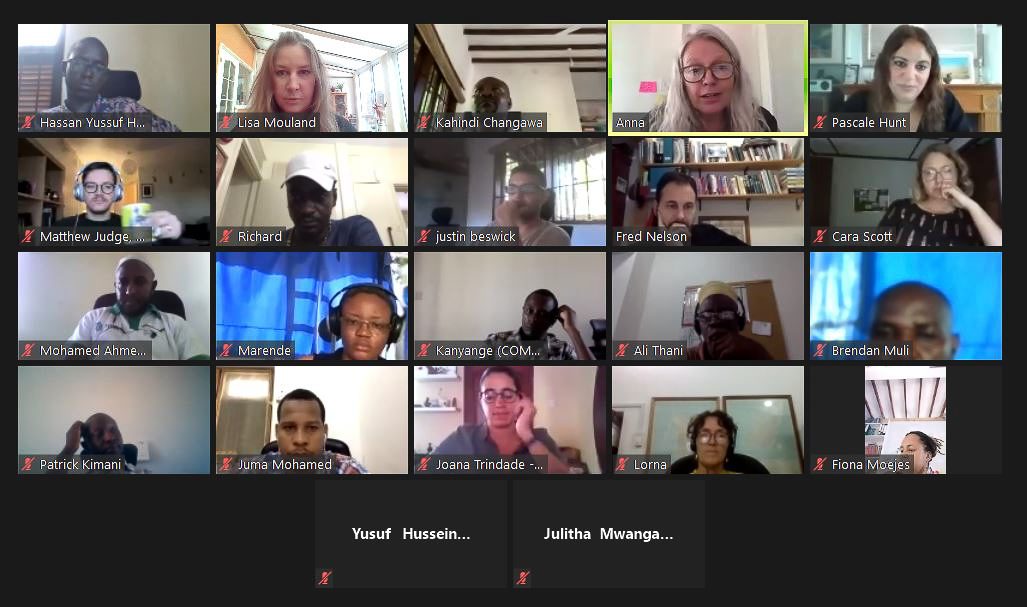
The live sessions lasted around four and a half hours, and invited a host of different experts | Photo: Maliasili
Dr Vik Mohan, Blue Ventures’ Director of Community Health, led a powerful session on stress, burnout and wellbeing, which proved enlightening and pertinent given the acute stresses associated with the pandemic. Vik’s session encouraged the leaders to acknowledge the risks of mental illness, enabled them to identify signs of burnout within themselves and equipped them with tools to foster greater personal resilience.
For me, this all hinges upon self compassion” says Vik, “If your work requires you to give of yourself, you must balance this by giving to yourself.”
Over the past year, the leaders involved in the AMCLP have been under immense pressure to support the communities they work with, meanwhile trying to source enough funding and the resources they need to provide this support, and stay safe doing so. The leaders care deeply about building lasting relationships with communities and have an acute sense of responsibility for what they do. Despite the leaders’ stoicism, the AMCLP provides a safe peer learning space to share their challenges and draw from each other’s strengths.
The high point of my experience was deepening my rapport with other cohort members. We need more collaboration in the sector, that is helped hugely when we deepen relationships with one another and learn more about others and their organisations” – Justin Beswick, Local Ocean Conservation, Kenya
Growing a network
The bonds formed within this cohort continue to flourish and the shared lessons learned have begun to extend beyond the leaders themselves, “We’ve seen some organisations really change some of their management practices and how they assess their team’s strengths quite significantly,” said Cara. For the facilitators of the training, receiving feedback like this is the most exciting part:
It’s so amazing to see the responses we get from people. We’ve had leaders say to us ‘I have learned a lot, I’m going to take this back to my organisation’. That’s what gives us joy and gives us that motivation to continue. Now we just need to think, ‘how can we make it better?’” – Richard, Maliasili
Together with Maliasili, transforming our approach throughout this year has been a valuable learning curve that will see lasting change in our way of working with community-based organisations. In future, we are looking to draw on the opportunities that both in-person and online learning present, to drive forward our shared commitment in building a united African voice for locally led conservation, spearheaded by a network of resilient and devoted leaders.
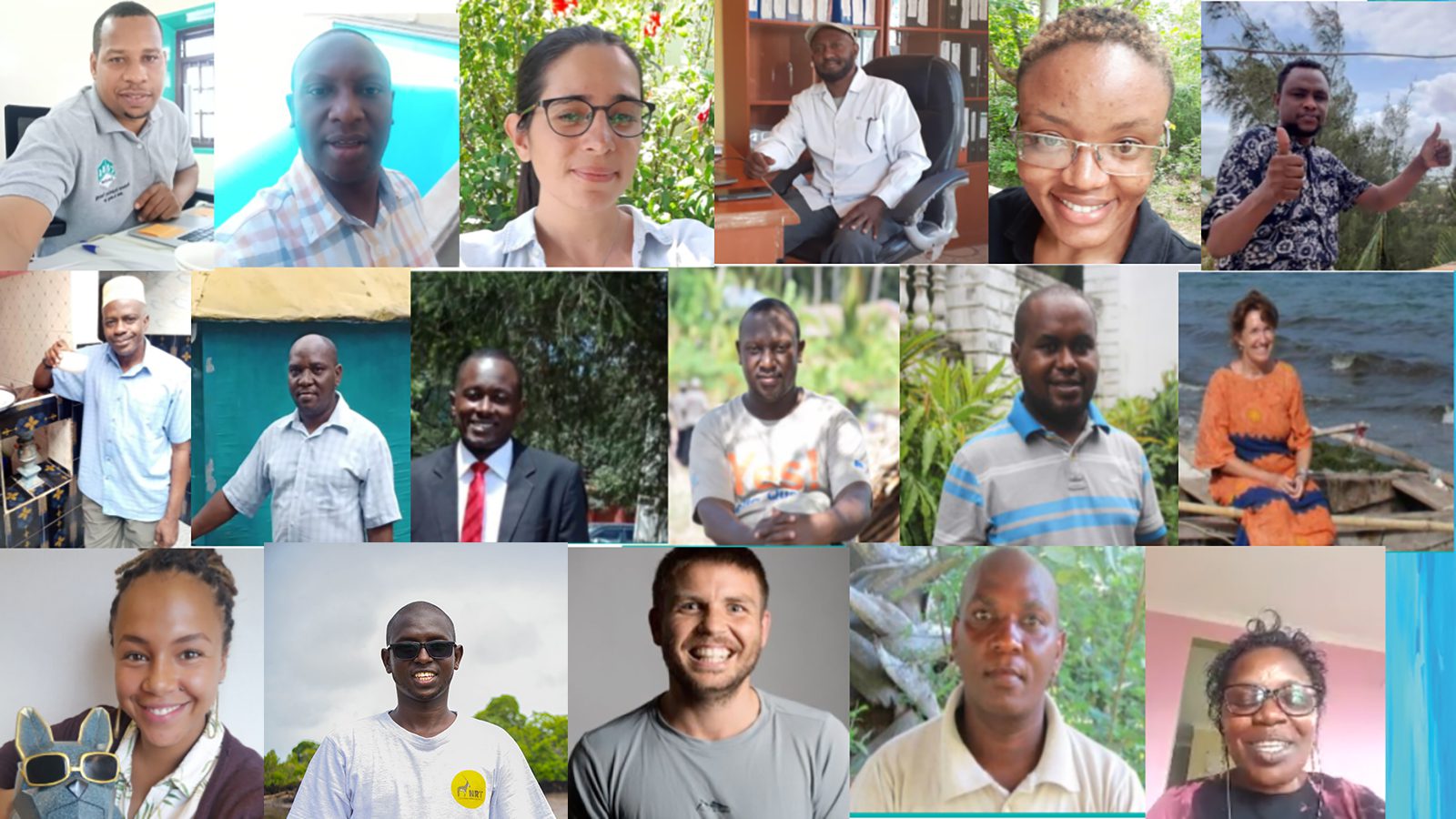
Learn more about the African Marine Conservation Leadership Programme
With thanks to the AMCLP participants and their organisations: Adeso, COMRED (Coastal and Marine Resources Development), Dahari, Kwetu Training Center for Sustainable Development, Local Ocean Conservation, Mwambao, Northern Rangelands Trust and Sea Sense.
A special thanks to the team at Maliasili for their unbounded expertise, support and collaboration.


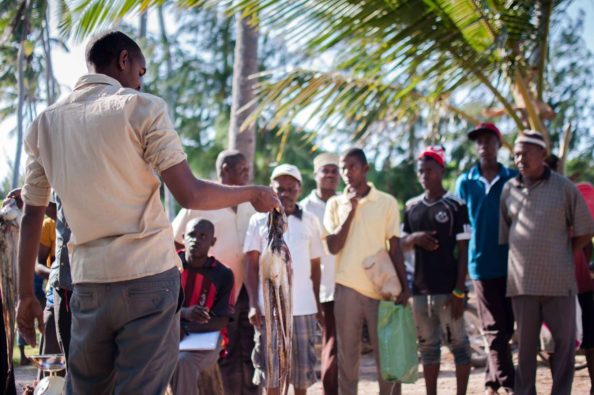
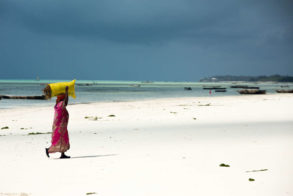
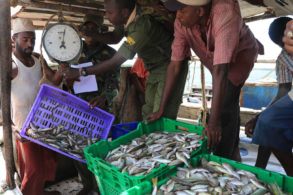
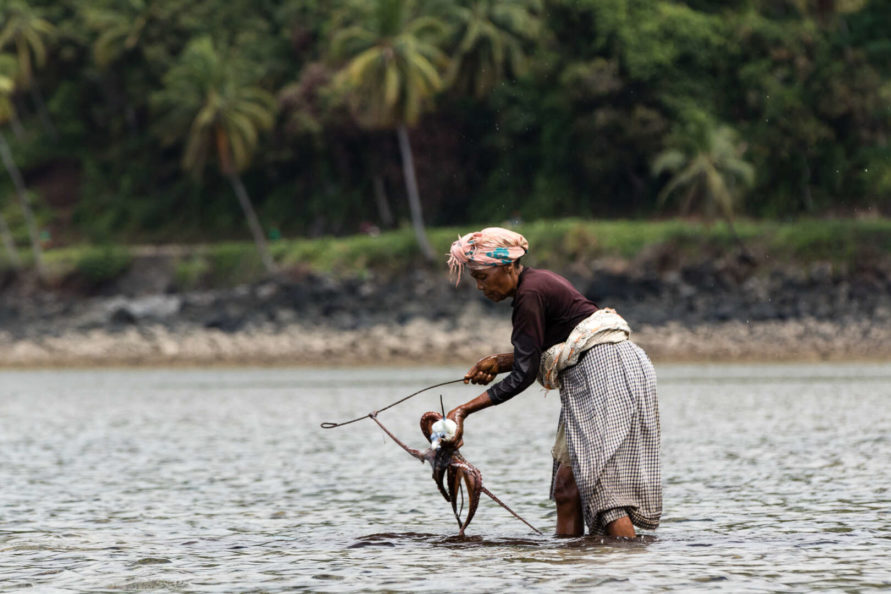
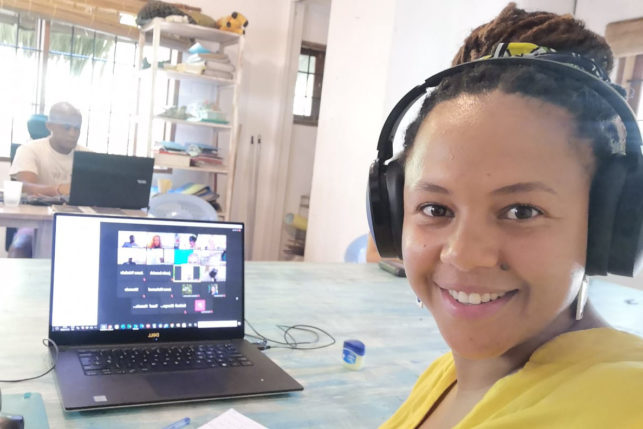
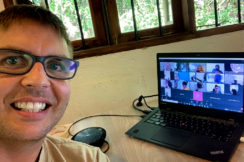
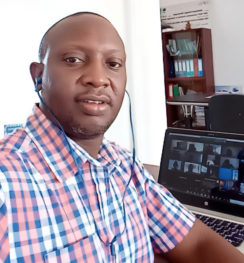
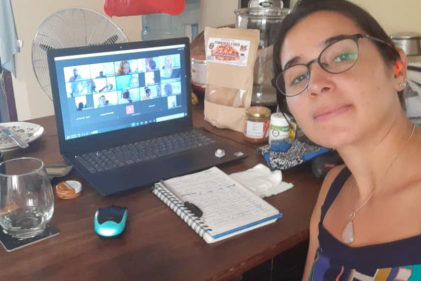
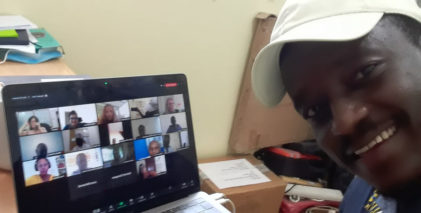
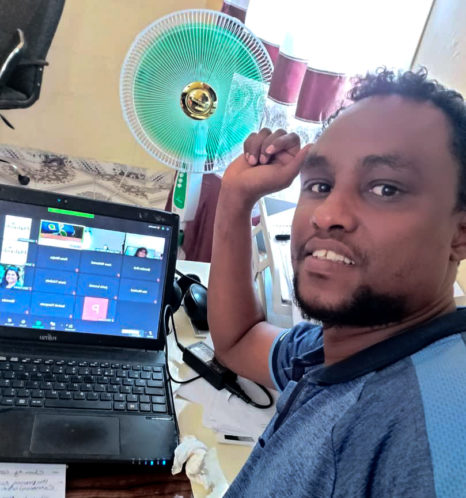
An inspiring reflection of resilience, adaptation, innovation and learning amidst an unprecedented COVID-19 challenge. A story of giving to self to give to others through personal and institutional leadership change. The marine leadership program coordinated platform is simply what was needed to keep momentum in coastal and marine conservation. Thanks to the team at Maliasili for the dedication.